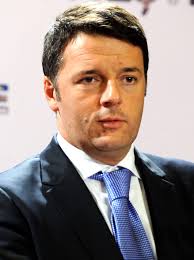Italy Stands By New Budget
Italian Prime Minister Matteo Renzi unveiled Italy’s budget plan to the European Commission on October 15. The proposed budget, which must be approved by the EU, would cause the country to run a fiscal deficit of 2.3 percent of GDP next year. This could be problematic as Italy’s deficit would be considerably higher than the 1.8 percent allowed by EU planners in Brussels. The European Union has already responded critically to Renzi’s proposal in a statement and demanded a more detailed breakdown of where budget funds will be allocated.

While in Washington on an official visit to meet with President Obama in mid-October, Renzi commented to reporters, “We did a very serious budget, with a deficit ratio of 2.3 per cent and as usual anonymous spokespeople say the EU is perplexed and will reject it...What will Brussels say ‘no’ to? Money for Amatrice [the town devastated by August’s earthquake]? Money for schools? Two billion more for healthcare? Well, they should tell us.”
Renzi claims that Italy cannot meet the requirements of the EU to have a smaller deficit due to the refugee crisis and recent earthquakes in the country. According to Financial Times columnist James Politi, this is a disingenuous reason because funding for response to the refugee crisis and earthquakes comprises a relatively small part of the deficit.
However, Politi and others do support Renzi’s call for the EU to be more flexible. These commentators claim that fiscal stimulus is necessary to jumpstart economic growth in Italy. Like many southern European nations, Italy has experienced anemic growth since 2009 and has never fully recovered from the financial crisis. Annual GDP growth has been less than 0.5 percent every year since 2009 and was negative in 2014. Some of the reasons for this slow growth, like an aging population, are not easily addressed.
While the European Central Bank (ECB) has made it easier for all European countries to run deficits by committing to keeping interest rates low and thereby making it easier for borrowers to repay debtors, the EU has been holding firm on its rules about budget deficits and government debt.
Many northern European countries, such as Germany and the Netherlands, have weighed in on Italy’s budget proposal and argued that southern European countries need fiscal discipline and should avoid spending money they can’t afford. In a joint news conference with Renzi last January, German Chancellor Angela Merkel said, “I don’t have the impression the decision by the ECB [to keep interest rates low] could lead to Italy saying ‘we don’t need to reform anymore.’”
The worry is that Italy could become another case like Greece, where richer European countries like Germany have had to bail out profligate governments that have lived beyond their means. Tensions between Rome and Brussels remain palpable as well, but the European Commission still has until early November to make their final decision on Italy’s proposal.
